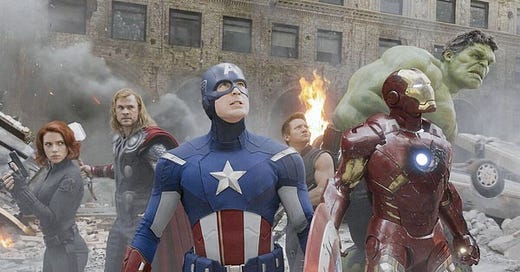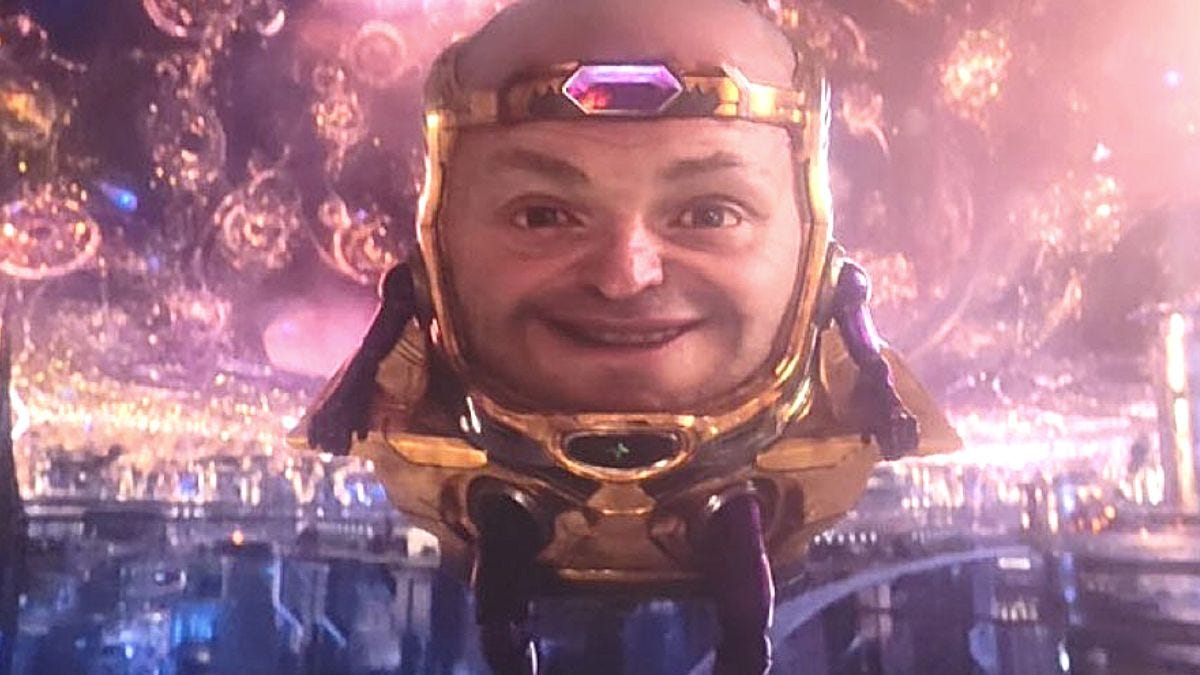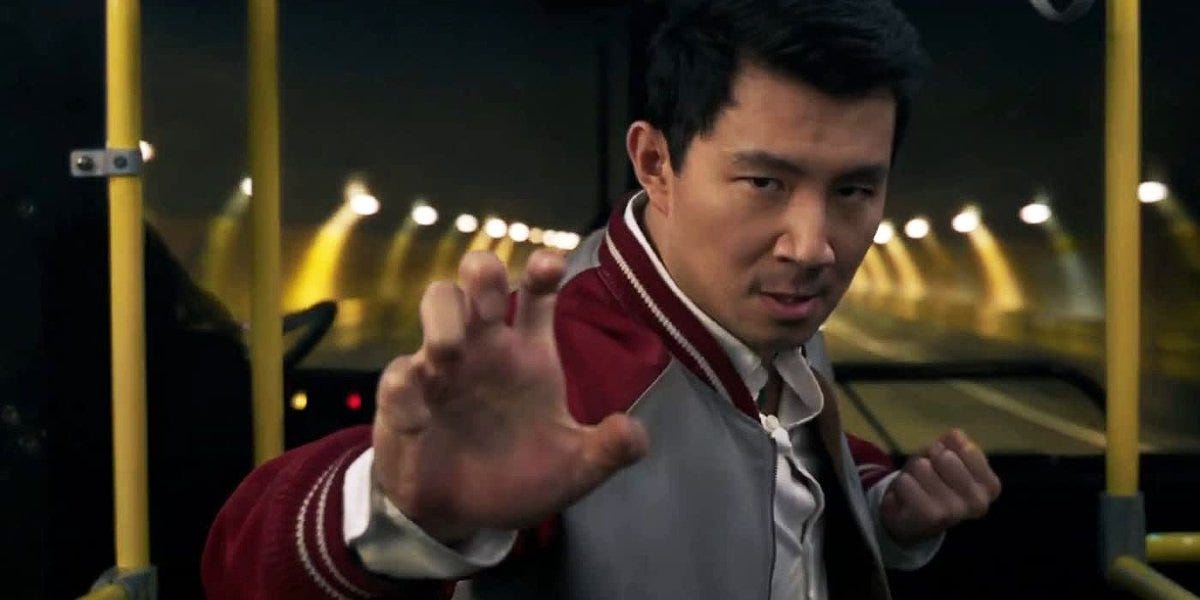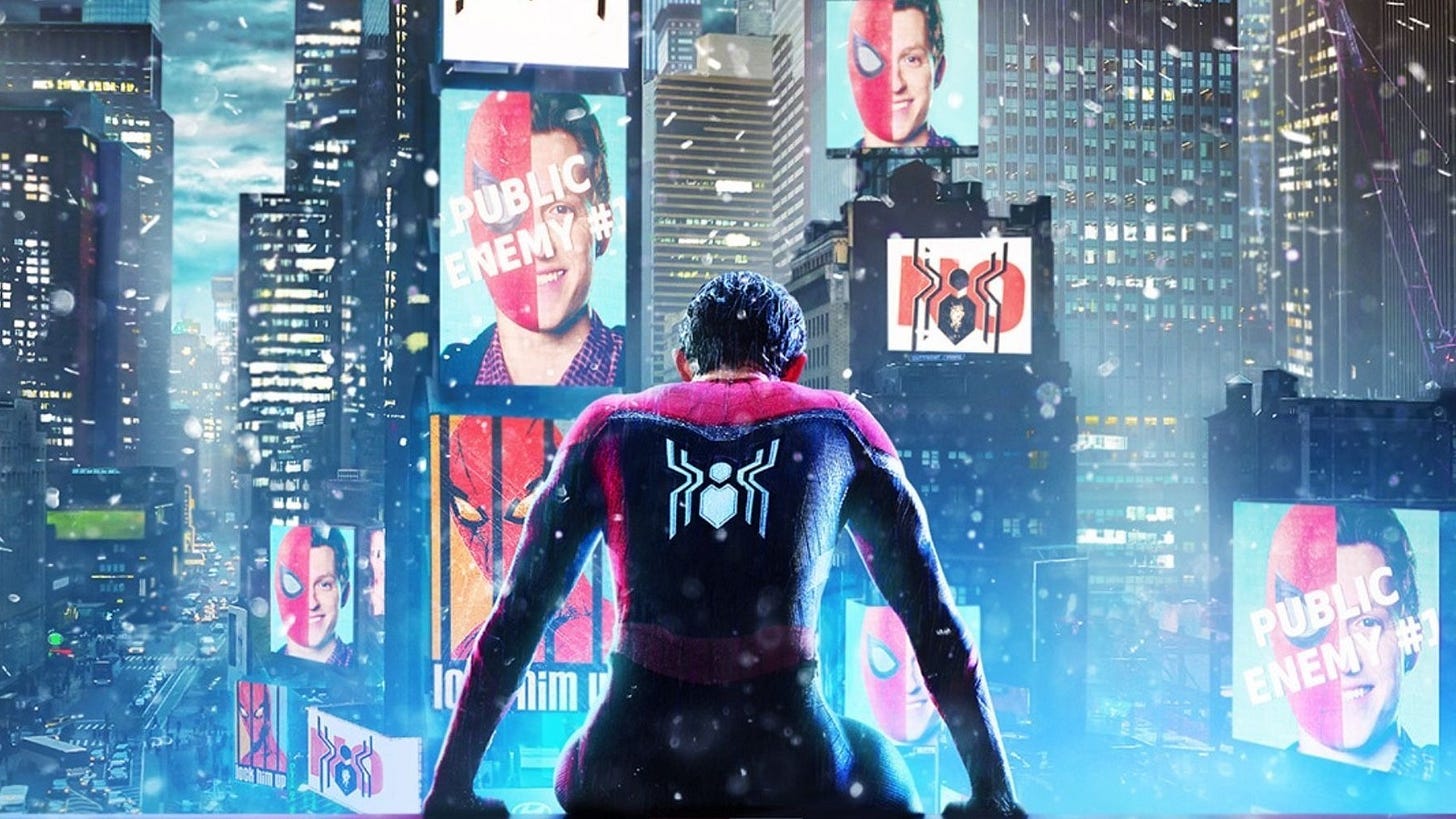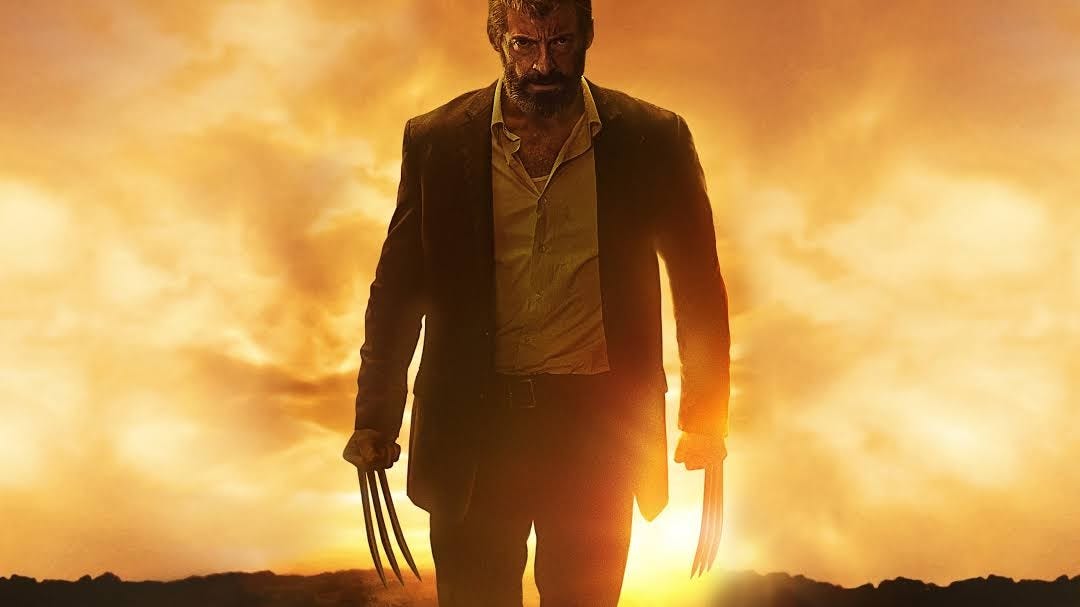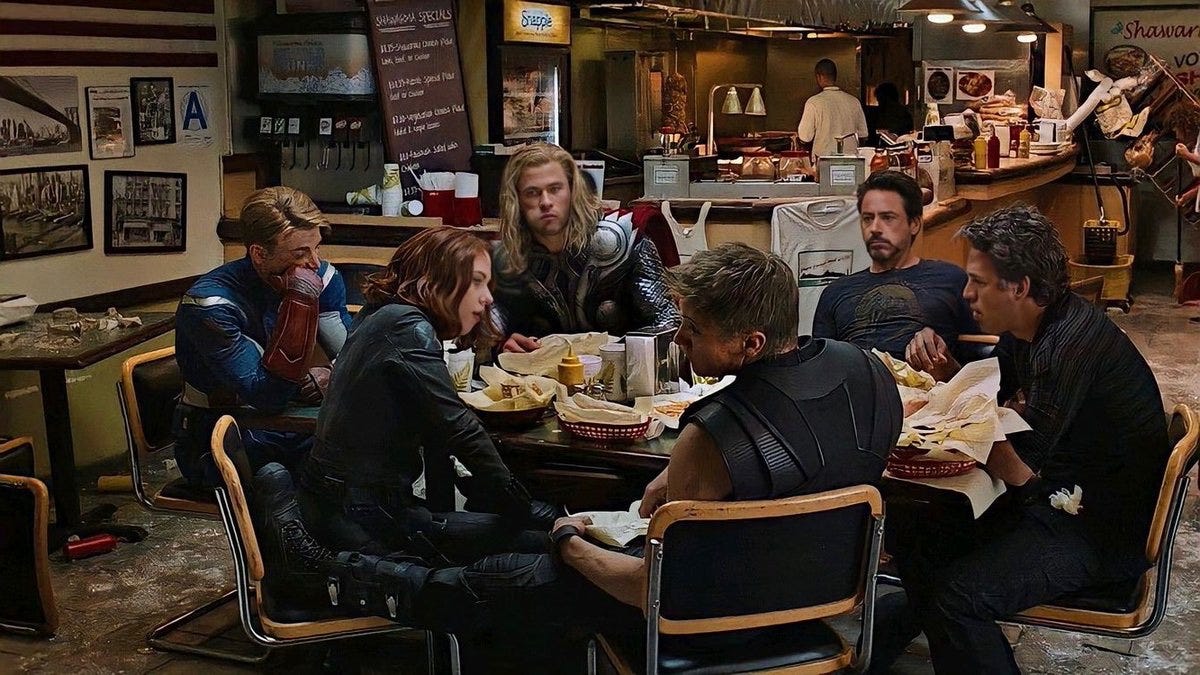If you read last week’s newsletter, you know I wasn’t a fan of Ant-Man and the Wasp: Quantumania, the 31st film in the Marvel Cinematic Universe. I wasn’t alone; while the film made a respectable, if – by MCU standards – unremarkable $100 million at the box office, it was one of the few Marvel movies to earn anything less than an A/A- CinemaScore, garnering a B and tying it with Eternals as lowest-ranking CinemaScore for an MCU project.
It’s a worrying trend for Marvel and its parent company, our overlords at the Walt Disney Corporation. As The Hollywood Reporter notes, four of the last six Marvel movies received a B or B+ CinemaScore – and while that doesn’t sound low, remember that CinemaScore is usually polled on a movie’s opening night, when the biggest fans will be in the audience. Anything less than an A- usually signals dissatisfaction among a movie’s target demo.
The sentiment on my social media signals that Marvel fatigue may be setting in, even among the diehards. And how could it not? Disney spent the last two years parading Marvel TV shows and movies in front of our eyeballs. Between 2021-22, there were 18 movies and Disney+ TV shows set in the Marvel universe. And while some of it — particularly WandaVision, Spider-Man: No Way Home, Shang-Chi and She Hulk – has been embraced (don’t come at me; She Hulk is fantastic), much of it seems to have been shrugged off. It’s not that there have been outright stinkers – even the most lackluster Marvel entry seems to have something to recommend. It’s that there’s a collective shrug about entries like Thor: Love and Thunder, Moon Knight and What If…? And that might be worse than outright anger; at least vitriol requires passion.
Unlike some of my fellow film fans and critics, I don’t see this as good news. I haven’t been praying for an end to the MCU; I don’t consider its existence the bane of all that is good in cinema. I still remember the thrill of watching Iron Man nearly 15 years ago and realizing that Marvel had actually created something that felt fresh and original. I consider the rock concert atmosphere that accompanied the opening night of The Avengers to be among the best moviegoing experiences of my life. I loved that they pulled off the multi-franchise experiment with Avengers: Endgame, and I find individual entries to be great fun to revisit, particularly Captain America: The First Avenger, Jon Watts’ Spider-Man films, and both Guardians of the Galaxy movies. And seeing these movies with my son opening weekend has become a fun tradition. I want Marvel to succeed.
But I can’t deny that the exhaustion is setting in for me as well. Ever since Avengers: Endgame wrapped Marvel’s 10-year story, everything has felt bigger, but not in a great way. It’s been messier, more confusing, forced. It feels obligatory way too often. What started as an intriguing narrative experiment has transformed into an unstoppable machine, and keeping it moving has sacrificed some of the creativity and joy this undertaking initially had.
And so, I present five humble suggestions that Marvel might want to consider to reinvigorate a nook of cinema that should be full of limitless possibilities.
Get serious
It’s hard to overstate how refreshing Iron Man’s tone was in 2008. The same year that the MCU debuted, the biggest superhero movie – in fact, the biggest movie of the year – was Christopher Nolan’s Batman sequel The Dark Knight, a film awash in brooding that continued the director’s fascination with grounding our mythic heroes. It was in line with a run of gritty action movies and spoke to our desire to see justice brought to a messy, chaotic world.
Nolan’s film is still possibly the greatest comic book movie ever made, but it ushered in a series of bleak, hard-edged action epics that seemed to forget any of this should be fun. Iron Man, however, pulled its tone from Robert Downey Jr.’s quippy personality. It was snarky, funny and cool where Nolan’s Batman was all angst. Marvel carried over that tone for the rest of their films and, by 2012’s The Avengers, it beat Nolan’s next Batman sequel at the box office – jokes about “Galaga” and shawarma included.
I admittedly like Marvel’s silly approach more than DC’s edge lord moping. It reminds me of the excitement and escapism of Star Wars and Indiana Jones; Marvel movies remind you this is all supposed to be fun. And some of them – particularly James Gunn’s Guardians of the Galaxy movies, the Spider-Man movies, and the first two Ant-Man adventures – rival the funniest studio comedies of the last few years.
But when everyone is cutting wise, the jokes begin to feel less refreshing than flippant, and they risk undercutting the stakes. It’s a go-to Marvel joke that something big and awesome will happen and then one of the characters will toss out a quip like “that was cool, right?” and suddenly it stops being awe-inspiring. Remember how much of a big deal it was that Spider-Man: No Way Home brought back Alfred Molina’s Doc Ock, one of the best villains put to the big screen? It took less than five minutes for Peter Parker and his friends to undercut Molina’s appearance with a joke about his name. And the immortal Eternals feel a little less epic when they’re making jokes about Steve Rogers or tossing out references to Ikea.
I’m not saying take a page from DC and go grimdark and dour. But make humor a spice of the MCU, not the main flavor profile. Yes, have Ant-Man movies be comedies. Do a Deadpool movie. Let James Gunn’s freak flag fly. But also, break from the required jokey tone all these movies default to. Explore the mental anguish of being the Hulk. Let Sam Wilson sit in the tension of being a Black Captain America in a nation of racial division without having to let him crack jokes with Bucky. Let Thor return to the regal, Shakespearean tones and bring in villains who are legitimately brutal and terrifying. Let the humor disarm us when necessary, but stop using it as a crutch.
Be spectacular
It’s hard to argue that Marvel lacks for spectacle. The two-part hit of Infinity War and Endgame literally toss in space opera, time travel and end-times drama while weaving in about 25 main characters. It’s as big as movies get, and Marvel hasn’t really narrowed its scope post-Blip. So, this isn’t an argument to go bigger.
But when is the last time anything in a Marvel movie has truly “wowed” you, particularly in terms of action or immersion? When has the spectacle been spectacular? There are only a few moments that truly have made me go “wow, that was amazing” in terms of action in the franchise’s 31-film run: the portals and “Avengers, assemble” in Endgame, the tracking shot during the Battle of New York in The Avengers, a few isolated fistfights from Captain America: The Winter Soldier, and the bus fight from Shang-Chi come to mind. But by and large, the action in Marvel movies is a blur of choppy editing and blobby special effects. And speaking of the latter, Marvel heroes may cross the universe, but every setting looks like it left the computer without a final render. Disney is spending so much money to crank these out quickly that they’re allegedly letting quality slide.
And listen, during the pandemic, when Marvel was pretty much the only game in town, it might have been forgivable. But think about three of 2022’s most talked about films: RRR, Top Gun: Maverick and Avatar: The Way of Water. Each delivered spectacle the likes of which Marvel never touches. Imagine if Eternals had the vulnerability and epic, over-the-top scope of RRR or if Marvel let Captain America or Captain Marvel engage in an adventure largely filmed practically, with real stunts like we get in the Mission: Impossible movies. Avatar’s final hour is a masterclass in action filmmaking; I’ve said it before, but every Marvel filmmaker should study James Cameron’s movie to understand the importance of clarity, geography and storytelling in an action sequence.
And that’s without mentioning the world-building. Marvel’s trips to space have been impressive, yes. But its other locales are lacking. The Quantum Realm is just the Star Wars world with Rick and Morty personalities, and Wakanda Forever’s undersea kingdom was a murky, depressing place to visit. Marvel has decades’ worth of strange worlds and cosmic realms to visit; isn’t it worth spending a little extra time and energy on the ability to bring them to life with sufficient awe?
Go deeper, not wider
Do you remember the final end credits sequence of Doctor Strange, when Baron Mordo turned into a homicidal villain? Aside from a variant we saw for about five minutes, that setup for a sequel was never followed up on for Doctor Strange in the Multiverse of Madness. Remember when Bruce Banner was struggling to reconcile his dual identities in Age of Ultron, but by the time we caught up with him in Thor: Ragnarok he was all-Hulk, no banner…before struggling with Banner again in Infinity War and then reconciling that conflict between that film’s climax and Endgame? How about when Spider-Man: Homecoming ended with Aunt May discovering Peter’s secret and then just caught up with it as a joke by the next Spidey film?
Any of those plot threads would have added sufficient character and drama to their heroes’ respective journeys. In addition to that, we’ve never really watched how Hawkeye balances home life and heroics, saw Peter Parker try to save the world and pay his rent, or had an MCU romance that feels real and endearing. Instead, every film is in a rush to bring in cameos, expand the universe and capture the frenzied excitement of an Avengers film.
It seems that once Joss Whedon found a way to bring all the various heroes together in one movie, that team-up became the de facto method of operation for most Marvel sequels. It’s how the final Captain America movie became focused not on Steve and Bucky but on bringing all the heroes together for an airport melee. Spider-Man can’t headline a movie without an older, wiser MCU figure like Tony Stark or Doctor Strange. Strange felt like a side character in his own sequel, which had to further the multiverse concept and serve as a sequel to WandaVision. And just recently, Ant-Man’s charm and small stakes have been sacrificed to bring in the next big bad.
And listen, I don’t dislike all these movies. I think Civil War is a lot of fun, and I really like those Spidey films. But would I have preferred to see a full movie focused on Cap trying to save and rehabilitate Bucky, or have gotten a film that let Doctor Strange grapple with the weirder aspects of the cosmic realm? Yeah. And while there are certain corners of the of the MCU that still largely stand alone, such as the Thor and Guardians movies (even if they teamed up briefly in Love and Thunder), they feel like the exception, not the rule, awkwardly hanging out while Marvel moves to whatever its next big crossover event is.
As we approach Avengers: Kang Dynasty and Avengers: Secret War in the next two years, there’s been a lot of speculation about who even comprises the new Avengers. And even though I’ve enjoyed Captain Marvel, Shang-Chi and a few of the other new films, I have to admit I’m baffled to think who could legitimately replace Tony Stark, Steve Rogers, Thor, Black Widow and Bruce Banner in the next lineup. It’s not because Simu Liu, Florence Pugh and Kathryn Newton aren’t good actors; it’s because options to explore their characters’ struggles, conflicts and personalities have been tossed aside in favor of sequels, team ups and opportunities to push forward the bigger – and, ultimately, less dramatically interesting – story. The answer? Stop trying to go big and wide – burrow deep, and explore these characters so that we have something we’re emotionally invested in when they inevitably team up.
Disconnect
Avengers: Endgame nailed the landing. After 11 years, it definitively answered the biggest question about the grand Marvel experiment: Can you team up dozens of characters from Marvel’s history and tell a cohesive, fun story?
There’s no way to go bigger or more connected after that, but – as I said above – Marvel has tried. When it was done teaming up all the characters in its various franchises, its next step was to introduce the multiverse as a way to bring in characters from other film franchises, like the Tobey Maguire and Andrew Garfield Spider-Man movies, or use the concept of variants to pull in Patrick Stewart for one last wheeze as Professor X or indulge in fan casting that brings in John Krasinski as Reed Richards without having to actually commit to him for the role.
It’s great for clickbait and to get people talking, but all it’s done is lead to a lot of wheel-spinning and confusion. And, again, it keeps Marvel from having to tell engaging stories about its heroes that captures what’s diverse and exciting about them.
They’re actually missing the possibilities the multiverse can provide. Why bring together three Spider-Men in one movie? Why not allow for a sprawling cinematic multiverse where many versions of the character can exist in their own stories, with their own tones? When the Multiverse Saga is complete, the best thing Marvel could do is find a way to close off all the parallel universes and then signify to audiences that “oh, this Iron Man story is in the gritty world where Tony Stark is an alcoholic;” “this Spider-verse is where everything looks like a 1940s detective movie;” “this X-Men movie is set in the future.”
One of the greatest joys of comics – and something I’m hoping DC capitalizes on with its Elseworlds label – is that different artists can take different characters to a number of places. Batman can be dark and violent, but he can also be a father figure. He can fight the Predator. By getting rid of the idea that all these movies need to take place in the same universe – and thus be united by a common color scheme and comedic tone – the Marvel movies could begin to diversify, find new audiences and experiment. Have the gritty, R-rated universe while also creating G-rated Spider-Man adventures. Have a universe where you constantly team people up, and then others where they’re the only heroes in their world.
And, most importantly, bring in directors with a vision that Disney will actually let them pursue. Bring in the RRR team and let them go crazy with Thor or The Eternals, or let Daniels have at a weird, low-budget X-Men movie. Peyton Reed’s made three high-grossing movies for Marvel; let him finally make the 1960s-set Fantastic Four movie he’s dreamed of. Let Leigh Wannell loose on an Iron Man techno thriller or Steven Spielberg helm a World War II-set Captain America/Howling Commandos movie.
Would it confuse mainstream audiences and kick-start a marketing nightmare? Perhaps. But we all thought aliens and spiritual realms and time travel would be beyond the pale for general audiences, and they accepted it. Have a bit of faith. And let the marketers work with Disney+ and other entities to explain it between movies.
It’s okay to take a break
I think the biggest reason for Marvel franchise fatigue is because there’s just so much of it. We went from one or two Marvel movies a year to three or four movies and just as many – or more – Disney+ series and specials. Even if it’s all good – and, let’s be honest, it’s not – it’s too much. What once felt special now feels oppressively common.
And I get that Disney owns a money-maker, and it needs that money-maker to keep making money (I don’t know if you’ve heard, but Disney likes money). It doesn’t want the Marvel train to stop rolling. And I don’t think it necessarily has to. It just has to throttle back and/or try something completely different.
I’m glad to hear that Kevin Feige recently announced that Marvel is going to pump the breaks on Disney+ series, with several rumored to move from this year into next. That’s a good start. But maybe, after the next Avengers movies, it’s time to do a temporary pause or a complete reset.
End Secret Wars with a tidying up of all the outstanding narrative threads and leave it at a place of closure. And then, spend a few years away from established characters or at least the established, ongoing storylines. Do two to three years of stand alone stories. Focus only on X-Men of Fantastic Four entries for a bit. And then, slowly, after a period of about five years, begin to bring in some of the familiar characters again – maybe with fresh faces – and lead to whatever the next team up is.
I like Marvel. I want to keep liking Marvel. But I can’t keep liking Marvel if it stays in this rut; and I can’t miss it if it never goes away.


